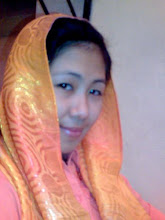It was not an isolated incident, according to human rights officials and aid workers in this region of western Sudan, where 1.2 million Africans have been driven from their lands by government-backed Arab militias, tribal fighters known as Janjaweed.
Interviews with two dozen women at camps, schools and health centers in two provincial capitals in Darfur yielded consistent reports that the Janjaweed were carrying out waves of attacks targeting African women. The victims and others said the rapes seemed to be a systematic campaign to humiliate the women, their husbands and fathers, and to weaken tribal ethnic lines. In Sudan, as in many Arab cultures, a child's ethnicity is attached to the ethnicity of the father.
"The pattern is so clear because they are doing it in such a massive way and always saying the same thing," said an international aid worker who is involved in health care. She and other international aid officials spoke on condition of anonymity, saying they feared reprisals or delays of permits that might hamper their operations.
She showed a list of victims from Rokero, a town outside of Jebel Marra in central Darfur where 400 women said they were raped by the Janjaweed. "It's systematic," the aid worker said. "Everyone knows how the father carries the lineage in the culture. They want more Arab babies to take the land. The scary thing is that I don't think we realize the extent of how widespread this is yet."
Another international aid worker, a high-ranking official, said: "These rapes are built on tribal tensions and orchestrated to create a dynamic where the African tribal groups are destroyed. It's hard to believe that they tell them they want to make Arab babies, but it's true. It's systematic, and these cases are what made me believe that it is part of ethnic cleansing and that they are doing it in a massive way."
Secretary of State Colin L. Powell flew to the capital, Khartoum, on Tuesday to pressure the government to take steps to ease the humanitarian crisis in Darfur. U.S. officials said Powell may threaten to seek action by the United Nations if the Sudanese government blocks aid and continues supporting the Janjaweed. U.N. Secretary General Kofi Annan is due to arrive on Khartoum this week.
The crisis in Darfur is a result of long-simmering ethnic tensions between nomadic cattle and camel herders, who view themselves as Arabs, and the more sedentary farmers, who see their ancestry as African. In February 2003, activists from three of Darfur's African tribes started a rebellion against the government, which is dominated by an Arab elite.
Riding on horseback and camel, the Janjaweed, many of them teenagers or young adults, burned villages, stole and destroyed grain supplies and animals and raped women, according to refugees and U.N. and human rights investigators. The government used helicopter gunships and aging Russian planes to bomb the area, the U.N. and human rights representatives said. The U.S. government has said it is investigating the killings of an estimated 30,000 people in Darfur and the displacement of the more than 1 million people from their tribal lands to determine whether the violence should be classified as genocide.
The New York-based organization Human Rights Watch said in a June 22 report that it investigated "the use of rape by both Janjaweed and Sudanese soldiers against women from the three African ethnic groups targeted in the 'ethnic cleansing' campaign in Darfur." It added, "The rapes are often accompanied by dehumanizing epithets, stressing the ethnic nature of the joint government-Janjaweed campaign. The rapists use the terms 'slaves' and 'black slaves' to refer to the women, who are mostly from the Fur, Masalit and Zaghawa ethnic groups."
Despite a stigma among tribal groups in Sudan against talking about rape, Darfur elders have been allowing and even encouraging their daughters to speak out because of the frequency of the attacks.

No comments:
Post a Comment